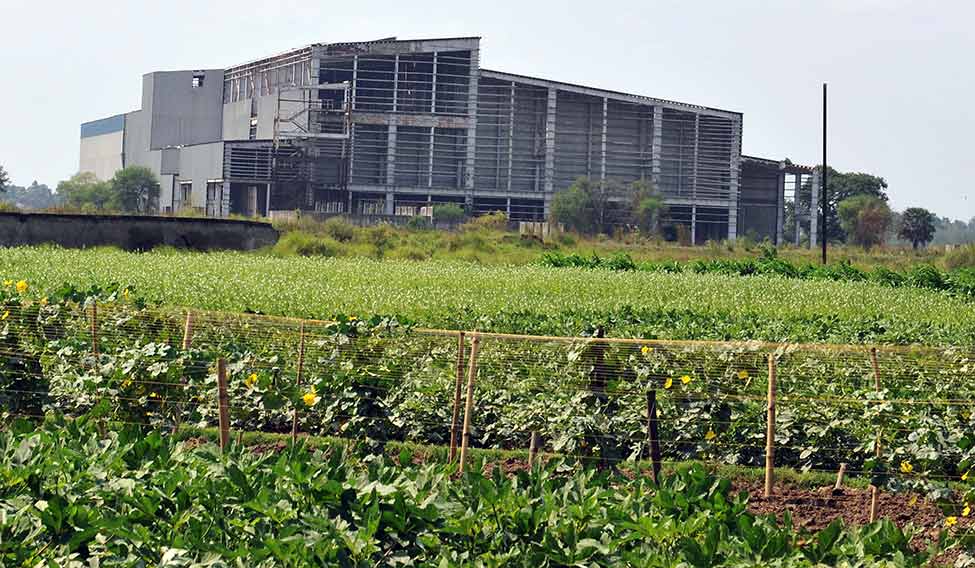What next in Singur? That is the question on everyone’s mind after the Supreme Court’s historic verdict on the Left Front government’s acquisition of agricultural land in Singur in 2006 for Tata Motors to set up Nano car plant. Last month, the court annulled the acquisition, saying “the proper procedure as laid down in the Land Acquisition Act was not followed by the state government”.
The verdict is a political victory for Chief Minister Mamata Banerjee and a boon to nearly 1,400 affected farmers, who are set to regain their land. Those who had been forced to cede property will receive compensation, while others who had willingly sold theirs would be allowed to keep the money they received. The loser, it appears, is Tata Motors, which had spent more than 01,000 crore to acquire land and set up the plant. As per the verdict, the company is not entitled to any compensation. Also, the verdict empowers the West Bengal government to take over the plant, which the company abandoned in 2008 after protests over the acquisition broke out.
Interestingly, Tata is yet to announce whether it would file a review petition or pray for a Constitution bench to review the decision. In either case, the chances of a reversal of the verdict appear slim. The company said it was still in the process of going through the judgment.
Tata’s loss, however, could well be the state’s, too. The Singur protests had led to several multinationals backtracking on their memorandums of understanding with the government. Even domestic IT majors like Infosys and Wipro suspended their expansion plans in the state. Many people fear the verdict might aggravate the state’s economic troubles and make investment climate bleaker. Interestingly, it came a few days after Tata Group chairman Cyrus Mistry said in Kolkata, “We are not averse to the idea of investing here. Yes, West Bengal could be our destination in the future.”
Economists, however, feel such statements are mere niceties. “I don’t trust any industrialist until they act, invest and put their money into the system,” Dipankar Dasgupta, former chief economist at the Indian Statistical Institute, told THE WEEK. “After the Singur fiasco, West Bengal is never going to be a destination for investors, in India or abroad. It would have been prudent for both the West Bengal government and Tata to settle the matter out of court. Tata could absorb the money they lost in Singur, but the government would never be able to bear the loss.”
Like several states in the northeast, say experts, West Bengal is overly dependent on Central grants and the public debt amounts to more than Rs 3,50,000 crore. “Every day, it has to enter into some kind of argument with the Union government,” said Dasgupta. “Unfortunately, without the manufacturing sector, the state cannot earn on its own and gain tax revenue. It will have no option but to remain on the warpath with the Centre.”
Even politicians seem to have realised this point. Trinamool Congress leader and Singur MLA Rabindranath Bhattacharya, who had led the protests against the land acquisition, termed the verdict as historic, even as he said he was anxious about the state’s future. “I am really happy that the people of Singur will get back their land,” Bhattacharya told THE WEEK. “But I will urge Tata not to take this ruling as a defeat. They are a premier business group. They should not forget Bengal.”
In a cabinet meeting that was hurriedly convened before she left for Rome to attend the canonisation of Mother Teresa, Mamata told her chief secretary to initiate action to return the land to farmers and make it cultivable. The following day, a team of officials visited Singur to gauge the situation. According to Dasgupta, unlike what the officials had told the farmers, making the land arable again would be an uphill task. “The character of the land has completely changed,” he said. “To my knowledge, it requires huge spending and time to transform the factory into farmland.”
Agreed Abdur Rezzak Mollah, former CPI(M) leader and currently minister for food processing in the Trinamool government: “It is not possible through manual labour. But I don’t know what could be done with technology. If we use modern equipment from foreign countries, it may be possible.”
The government, however, has started clearing the overgrown factory premises in Singur. Sources said all preparations were being made to demolish the factory. It is not clear whether the demolition would start before September 14, the day Mamata would visit Singur, hold an administrative meeting and address a rally.
Sensing that the Singur verdict could affect the state’s economic prospects, Mamata has ramped up her efforts to attract investments. After her visit to Rome, she went to Munich, where she visited a BMW factory and is set to meet industrialists in Europe to urge them to invest in West Bengal.
Experts, however, say she would have to do more than just pitch for investments to lift the state’s economy. “She is going to London, Singapore, Italy. Her next destination would be the US, probably. But no one is advising her to rethink her policy at home,” said economist Amal Mukherjee.
According to him, Mamata would have to first ease the acquisition process to attract investments. “Land is fragmented in India, and every state helps industries find and acquire land,” he said. “Is it possible for a businessman to negotiate with 15,000 farmers to get 500 acres? If she understands this, she would know she hasn’t won.”








